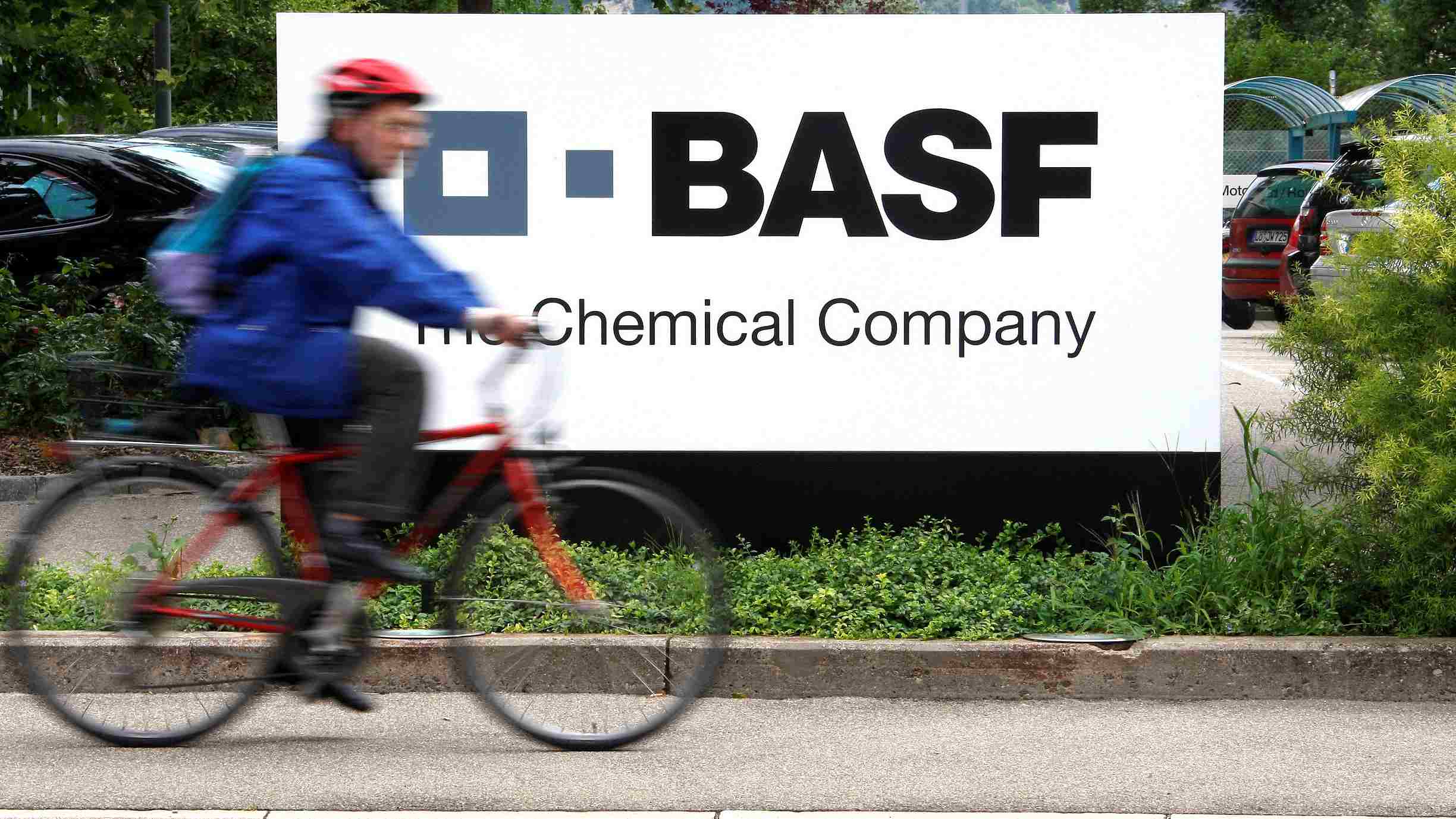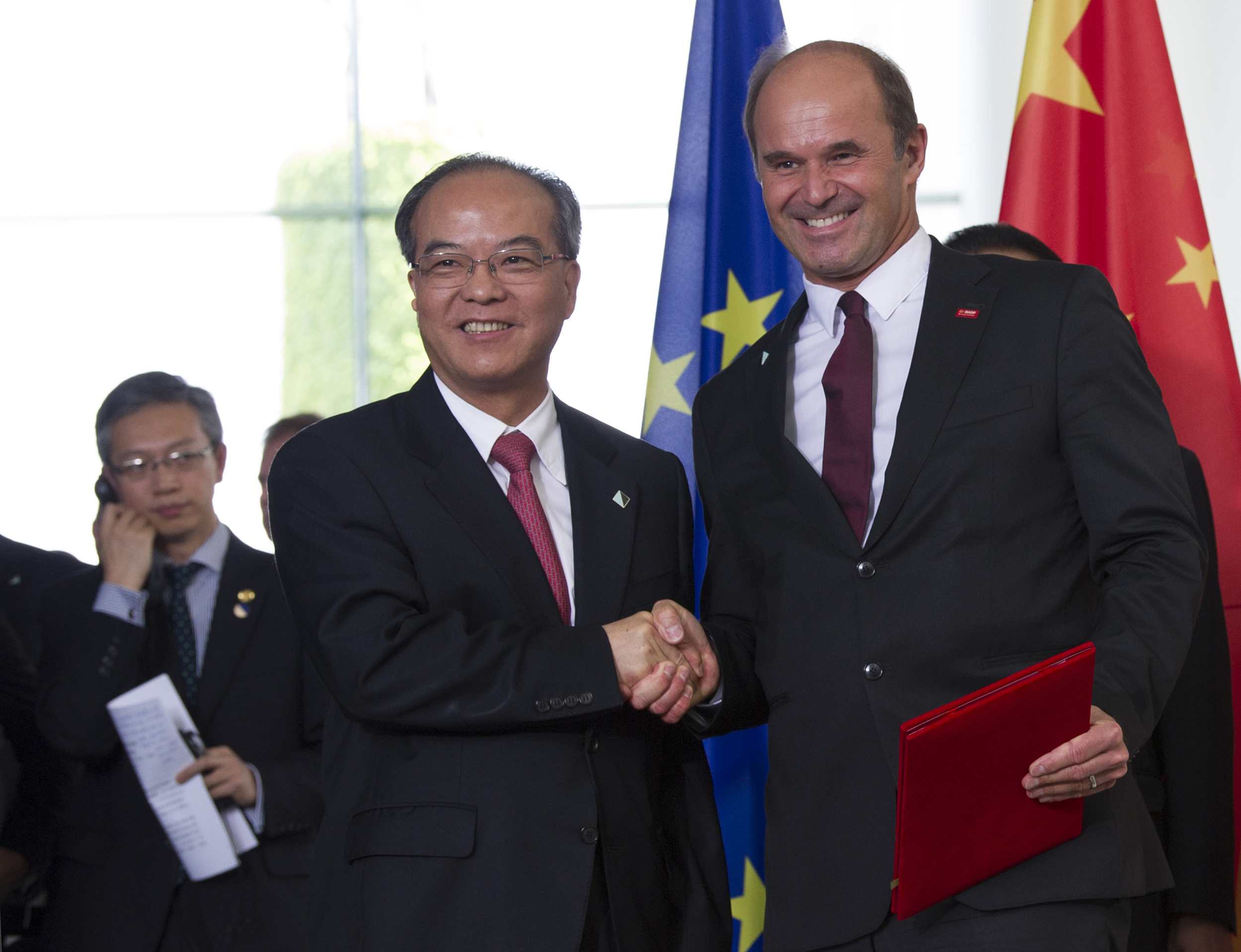
Business
10:48, 11-Jul-2018
German chemical giant BASF reveals plans for first wholly-owned China plant
Updated
10:12, 14-Jul-2018
Nicholas Moore

German petrochemicals giant BASF has announced plans to establish a 10 billion US dollar plant in south China’s Guangdong Province, in what would be the company's first wholly-owned project in the world’s largest chemicals market.
The announcement, made via BASF’s website, came on Monday, shortly after a memorandum of understanding (MoU) was signed on Sunday between BASF Chairman Martin Brudermuller and Lin Shaochun, Executive Vice Governor of Guangdong Province, in Berlin, during Chinese Premier Li Keqiang’s visit to Germany.
The announcement is particularly significant after recent sweeping reforms made by China regarding curbs on international companies and joint ventures, with BASF’s plans for a wholly-owned plant a reflection of the positive response to Chinese reform and opening-up among the international business community.

Lin Shaochun, executive vice governor of Guangdong Province, left, shakes hands with Martin Brudermueller, chief executive officer of BASF SE, during a business contract signing session at the Chancellery building in Berlin, Germany, July 9, 2018. /VCG Photo
Lin Shaochun, executive vice governor of Guangdong Province, left, shakes hands with Martin Brudermueller, chief executive officer of BASF SE, during a business contract signing session at the Chancellery building in Berlin, Germany, July 9, 2018. /VCG Photo
The Guangdong plant will follow BASF’s “Verbund” model of integrating entire production processes on one site, and will be the company’s third largest in the world, after plants in Germany and Belgium.
According to BASF’s statement, China represents 40 percent of global market share for chemicals, and dominates growth of global chemical production.
The Guangdong site would be BASF’s sixth Verbund plant, and its second in China, after a 50:50 joint venture with China’s Sinopec was established in 2000 in Nanjing. Since that plant was established, McKinsey has reported that BASF has seen an annual compound growth rate of 20 percent in the Chinese market.
In 2017, the company’s China sales hit 7.3 billion euros (8.56 billion US dollars), up from 5.9 billion euros the previous year.
As outlined in its statement, BASF has chosen Guangdong Province as the site of the plant because of its 110-million-strong population and GDP which “already exceeds that of Spain and will soon have reached that of South Korea.”
The first plants in the Verbund project should be completed by 2026 at the latest, with the entire site fully operational by 2030. BASF has said the Guangdong site will include a “steam cracker with a planned capacity of 1 million metric tons of ethylene per year,” before focusing on more “customer-oriented products and solutions.”

SITEMAP
Copyright © 2018 CGTN. Beijing ICP prepared NO.16065310-3
Copyright © 2018 CGTN. Beijing ICP prepared NO.16065310-3